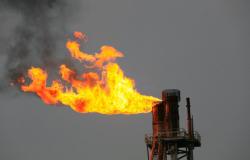In an economic landscape often troubled by uncertainty and volatility, the recent decrease in gas prices recorded in European markets offers a pause for reflection and, potentially, a breath of optimism for consumers and investors. In the latest calculation, prices showed a decrease of 1.7%, positioning themselves at 33.1 euros per megawatt hour in the Amsterdam market. This price movement is not just a number on a doll, but a crucial indicator of the dynamics within the energy sector.
Before delving into the implications of this change, it is essential to understand that the gas market is influenced by a number of complex factors. Among these, the current storage levels and flows of Liquefied Natural Gas (LNG) represent decisive elements. Historically, Europe has seen a growing reliance on LNG as an alternative to pipeline gas supplies, complicated by geopolitics and other external factors.
The recent decline can be interpreted as the result of effective energy policies and better resource management. Storage, for example, has received particular attention over the last year, with significant investments in storage capacity and diversification of supply sources. These strategies aim to reduce vulnerability to supply shocks and unpredictable price fluctuations.
From a consumption point of view, the reduction in gas prices has potential positive repercussions for both industries and domestic consumers. For industries, particularly energy-intensive ones, lower gas costs can translate into reduced operating expenses, with benefits that can range from stabilizing final product prices to improving global competitiveness. For domestic consumers, the decrease could ease pressure on household budgets, which are increasingly strained due to an uncertain economic climate.
However, with every positive development new challenges emerge. The energy market remains incredibly sensitive to external factors such as geopolitical tensions, environmental policies and changes in consumer behavior. Furthermore, the growing focus on sustainability is driving a rapid evolution towards renewable sources of energy, which could further alter natural gas market dynamics.
In conclusion, the recent reduction in gas prices in Amsterdam is a phenomenon that deserves attention and analysis. Governments and companies will need to carefully navigate this changing environment, balancing the immediate needs of energy security and affordability with the long-term goals of sustainability and energy transition. For now, this truce in prices could offer the necessary breathing space for various stakeholders to plan for the future with greater confidence and strategy.






